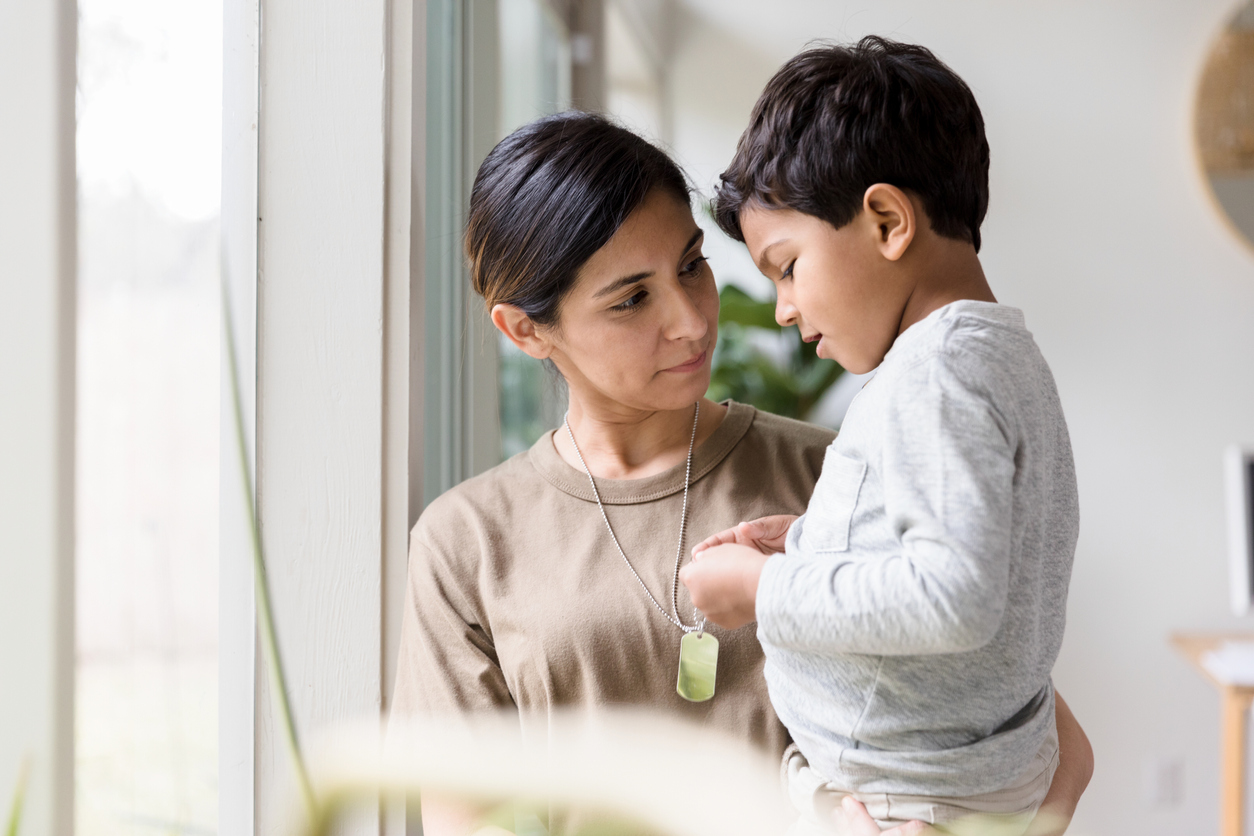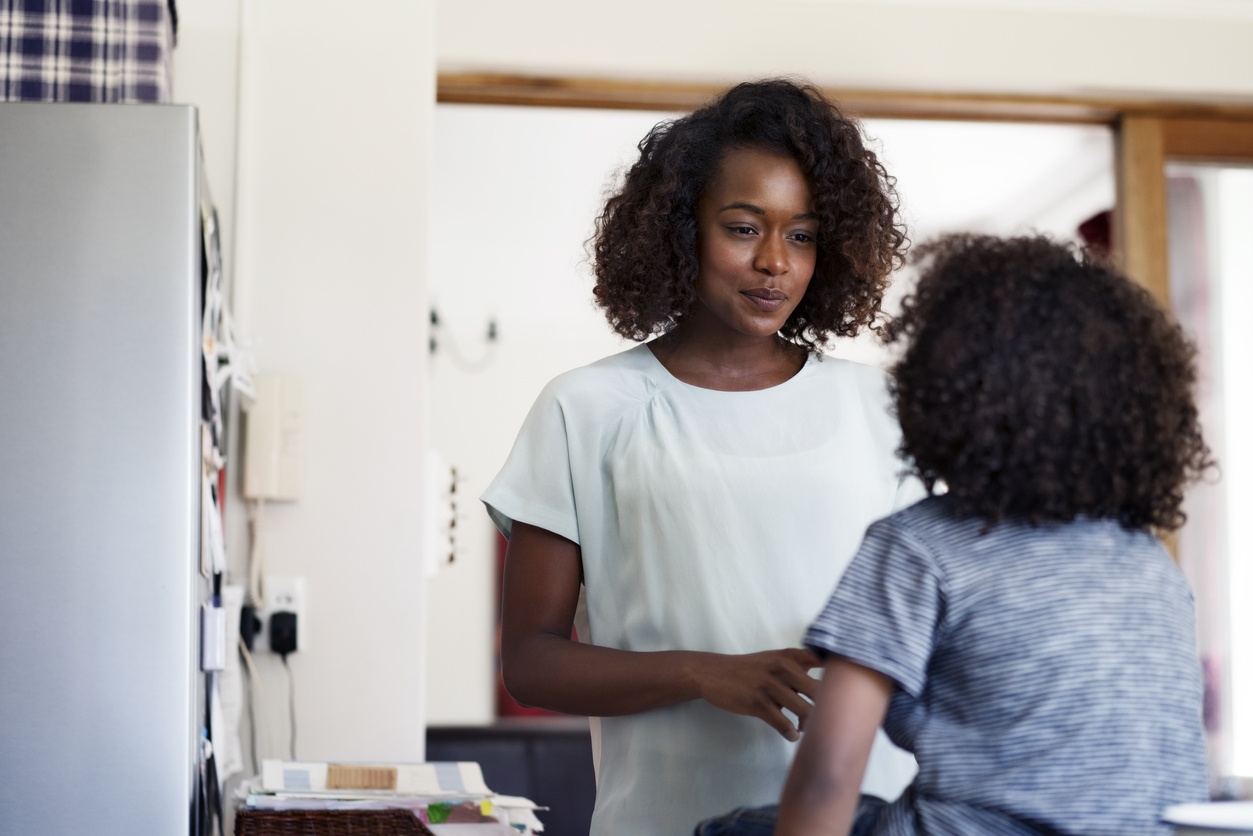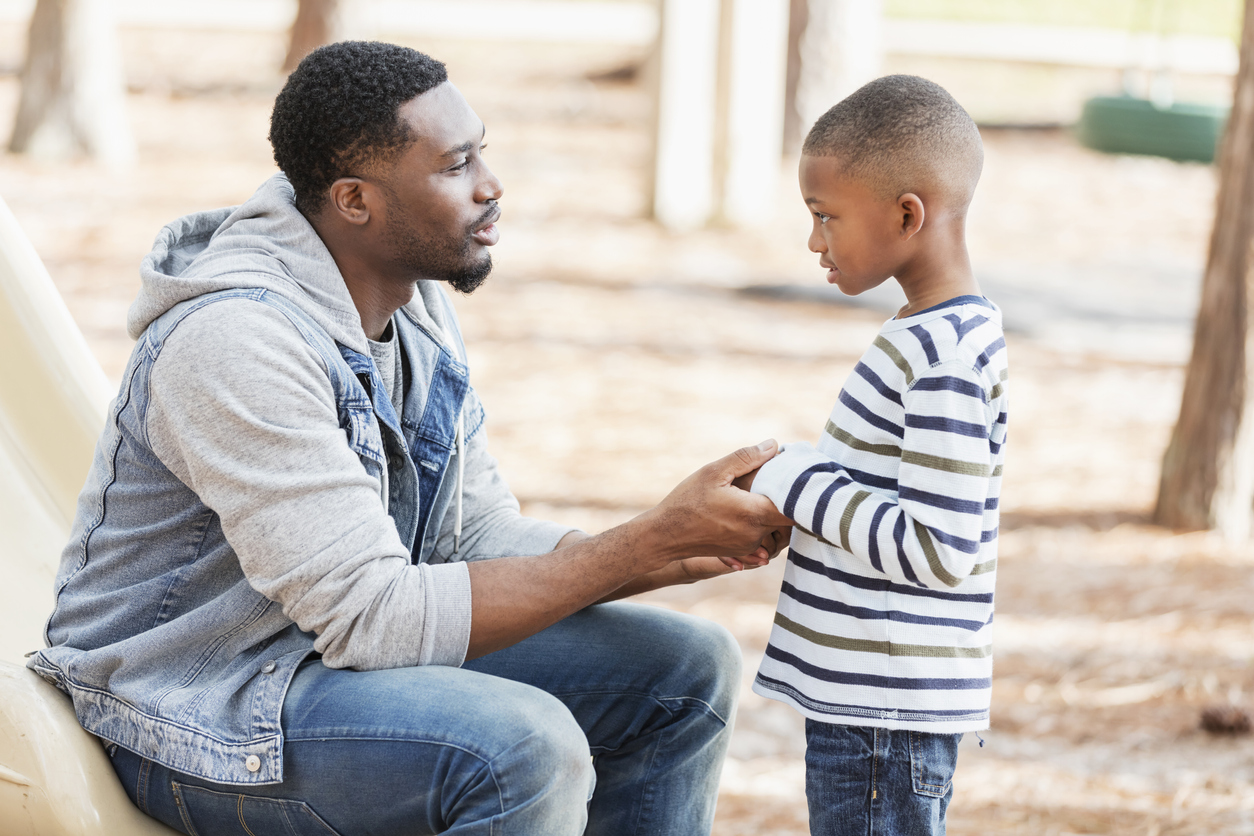
At some point, most parents will find themselves faced with an inevitability: the moment they realize it's time to talk to their children about puberty and sex ed. For some parents, these conversations begin as early as possible, before their children have any idea what they're talking about. For others, it happens later.
While I definitely fall in the "talk to your kids as early as possible" camp, I understand why parents can feel nervous about opening up this conversation. But here's the thing: Your kids probably already know more about puberty and sex then you think they do. Even if you aren't the one talking to your kids about these topics, they probably know at least one kid who has been talked to, or who has an older sibling who is more than happy to share details.
And I don't know about you, but the idea of my child finding out the details of sex and puberty from a bunch of other half-informed kids really does a number on me.
Why do you have to talk to your kids about puberty and sex?

You need to have these conversations with your kids because everyone goes through puberty, and nearly everyone has sex. Your children are probably going to encounter sexual situations, and that could happen with or without your knowledge — and could even happen before you think they're old enough for it.
As Cath Hakanson, a sex educator, says, "Firstly, your kids are going to hear about sex, from their friends, from surfing the internet, and by watching the television. By getting in first, you are making sure that they receive the right information and more importantly, that they know how you feel about it."
How honest is too honest?

For me, there's no such thing as conversations with your kids that are "too honest" as much as there is definitely a thing as "age-appropriate" conversations. The difference there might be tiny, but it's real. If you approach a potentially hard conversation in an erratic, scattered way because you're anxious about it, your kids are probably going to associate those erratic, scattered feelings with the topic itself.
For me, I've found that when I let myself feel the nerves before talking to my kid about something hard, I can then approach the conversation better. Feel the feelings, do some googling to find out what other parents are saying, take a breath, and then go for it.

Another thing you can do from the very beginning of your child's life is to use the proper names for various parts of their bodies and of your own. It's perfectly OK to arm your child with the real names of their own body parts: There's nothing shameful about knowing what your body is called.
By doing this, you will also lay a foundation of honesty for your child in terms of conversations about puberty and sex. And hopefully, as your child ages, they'll feel like they can come to you with their questions, concerns, and experiences.

Cath Hakanson says that between the ages of 0 and 2, you can teach your children:
- “The names of their body parts — yes, the penis and vulva, too!
- That it is okay to touch all parts of their body — let them grab their vulva or penis at bath time or during nappy changes.
- Start pointing out the differences between boys and girls – boys have penises and girls have vulvas.”
And when your child is between ages 2 and 5:
- “The correct names of the body parts and what they do.
- That boys and girls are different but are also the same – girls usually have a vulva, boys usually have a penis but we all have nipples/bottoms/noses/hands, etc.
- That our bodies are different and that is okay to be different.”
She continues to offer guidelines for talking to your young children about privacy, touching ourselves, and body ownership, in addition to talking to kids all the way to adulthood.
How do you begin the conversation in the first place?

There are a lot of ways to begin a conversation about puberty and sex with your kids, and each parent really has to figure out what works best for them. It's impossible for anyone to tell you what will definitely work because you're the person who knows your kid, the person who knows your family, and who knows the context that your family lives in.
I can say that I have so far had some pretty good success by actually listening to what my kid wants to talk about first. A few years ago, a friend told me that her key to staying close to her son as he's grown up has been to always genuinely be interested in at least one, if not several, of his interests. I don't mean that you have to memorize the name of every Pokémon or video game camera or whatever, but when you really listen to what your child wants to talk about, you'll probably find something that you want to talk about, too.
Once you have a shared interest, it's pretty easy to find opportunities to bring up harder conversations through that shared interest. Maybe you're reading a book series together, or you both like to watch the same television show — situations in that book series or show could give you an opportunity to have a larger conversation with your child.
Once you start talking, also be prepared to listen, even if you don't always like what you hear.




